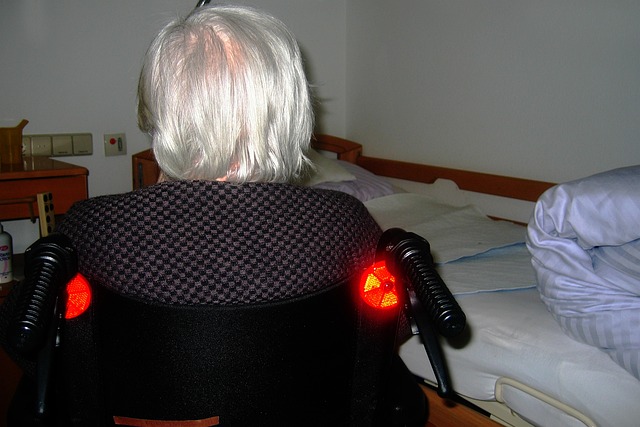Save Money on Senior Care in Laredo, Texas – Free Consultation Today!
Looking for high-quality home care services for your senior loved ones in Laredo, Texas? Say goodbye…….
Laredo, a vibrant border city in South Texas, is home to a diverse population, including a growing number of seniors. As the aging demographic continues to rise globally, ensuring high-quality care and support for older adults within their communities has become a top priority. This article delves into the world of home care services tailored specifically for seniors in Laredo, exploring its various aspects, benefits, and the impact it has on improving the quality of life for this demographic. By examining the current landscape, trends, challenges, and future prospects, we aim to provide an insightful guide for residents, caregivers, and policymakers alike.
Home care services for seniors refer to a range of non-medical assistance and support provided directly in the individual’s home. These services are designed to promote independence, enhance quality of life, and assist older adults in maintaining their daily routines. In Laredo, Texas, such services encompass various activities, including but not limited to:
Home care services for seniors have evolved significantly over the years, driven by changing societal needs and advancements in healthcare. In the past, older adults were expected to live independently, often resulting in a lack of support for those with chronic conditions or limited mobility. However, the recognition of the value of home-based care has led to a growing demand for these services worldwide.
In Laredo, Texas, the need for home care became more pronounced as the city’s senior population increased. The region’s warm climate and vibrant cultural heritage make it an attractive place to live for many seniors. However, access to affordable and quality home care services can be challenging, especially for low-income or minority communities. This article aims to shed light on these disparities and explore potential solutions.
The concept of home care is not new, but its implementation and acceptance vary across the globe. Developed countries like the United States, Canada, and Western Europe have well-established home care systems, often supported by robust healthcare infrastructure. In contrast, developing nations may face more significant challenges in terms of funding, skilled workforce, and access to technology.
In Texas, Laredo stands out as a diverse city with a unique cultural mix, which also translates into varied healthcare needs. The state’s large senior population and the presence of border communities introduce specific considerations for home care services. For instance, proximity to Mexico may influence cultural preferences and accessibility, while border regions might face challenges related to cross-border healthcare coordination.
The global home care market has experienced steady growth in recent years, driven by factors such as aging populations, changing societal attitudes, and technological advancements. According to a report by Grand View Research, the global home health care market size was valued at USD 427.1 billion in 2020 and is expected to expand at a compound annual growth rate (CAGR) of 6.3% from 2021 to 2028.
In Texas, the demand for home care services has been rising, especially in urban areas like Laredo. The state’s economy, driven by industries such as healthcare, technology, and international trade, contributes to a thriving job market and increased disposable income. This economic prosperity can translate into greater investment in home care, including private pay services and public funding.
One of the primary concerns for seniors and their families is the affordability of home care services. The cost of home care varies widely depending on the level of assistance required, location, and duration of service. In Laredo, Texas, factors such as competitive labor markets and local economic conditions can influence pricing.
Publicly funded programs, such as Medicaid in the US, play a crucial role in making home care more accessible to low-income seniors. However, eligibility criteria and waiting lists can be challenges. Private pay services offer more flexibility but may not be within reach for all families. Addressing affordability is essential to ensuring that quality home care is available to all seniors, regardless of their financial status.
Technology has revolutionized various sectors, including healthcare. In the context of home care, digital solutions offer opportunities for improved efficiency, better patient monitoring, and enhanced communication. Some notable advancements include:
Laredo’s proximity to the US-Mexico border presents unique opportunities for adopting innovative technologies that bridge cultural and geographical gaps. For example, cross-border digital healthcare platforms could facilitate access to specialists or remote consultations for Spanish-speaking seniors. Moreover, leveraging technology can help address workforce shortages by enabling remote care management and virtual support.
Home care services have been shown to significantly enhance the quality of life for seniors. By providing assistance with daily tasks, seniors can maintain their independence, preserve dignity, and enjoy a higher level of comfort in their homes. Personalized care plans cater to individual needs, ensuring that each senior receives the support they require to live fulfilling lives.
Home care can play a vital role in post-discharge recovery by providing ongoing support in familiar surroundings. This approach can help reduce hospital stays and minimize the risk of readmission, as seniors receive continuous monitoring and assistance with wound care, medication management, and physical therapy exercises.
Home care services often include companionship and socialization components, which are essential for combating loneliness and isolation among seniors. Regular visits from caregivers can foster meaningful connections, encourage social participation, and contribute to overall mental well-being. This aspect is particularly significant in diverse communities like Laredo, where fostering social inclusion can promote cultural understanding and community cohesion.
One of the primary challenges in providing home care services is the ongoing shortage of qualified caregivers. In Laredo, Texas, as in many regions, there is a need for more trained professionals to meet the growing demand. Addressing this gap requires comprehensive training programs, industry partnerships, and incentives to attract and retain a skilled workforce.
Laredo’s diverse population brings cultural richness but also presents challenges related to language barriers and cultural sensitivity. Caregivers must be proficient in multiple languages and understand cultural nuances to provide effective care and build trust with seniors from various backgrounds.
Ensuring equitable access to home care services is a complex issue, especially for low-income families and minorities. Financial constraints, lack of awareness, transportation challenges, and cultural barriers can limit access. Addressing these disparities requires targeted initiatives, public education, and collaboration between community organizations and healthcare providers.
The future of home care lies in leveraging technology and data analytics to improve service delivery. Telehealth, remote monitoring, and personalized care plans will likely become more prevalent, allowing for efficient and effective care. Additionally, the integration of artificial intelligence (AI) and machine learning can optimize resource allocation and predict care needs.
Building partnerships between home care agencies, healthcare providers, community organizations, and government entities is crucial. Collaborative efforts can lead to better coordination of services, knowledge sharing, and cost-efficiency. For instance, joint initiatives could include inter-professional training programs, cultural competency workshops, and community outreach events.
Government support is essential for expanding access to affordable home care services. Policies that promote public funding, regulate service quality, and provide incentives for private providers can contribute to a robust home care system. Additionally, investing in research and development related to innovative care models and technology integration will be beneficial.
Empowering seniors and their families through education and support is vital. Community resources, caregiver training programs, and access to information about available services can enable families to make informed decisions and navigate the complex landscape of home care effectively.
Home care services for seniors in Laredo, Texas, represent a dynamic and essential component of the city’s healthcare ecosystem. By understanding the current landscape, embracing technological advancements, and addressing challenges through collaboration and targeted initiatives, it is possible to improve the lives of older adults while respecting their independence and cultural diversity. As the city continues to grow and evolve, so too must its home care system to meet the needs of a changing demographic.

Looking for high-quality home care services for your senior loved ones in Laredo, Texas? Say goodbye…….

Are you seeking reliable and affordable home care solutions for your loved ones in Laredo, Texas? Bo…….

Say goodbye to financial burdens and hello to peace of mind with our home care services for seniors…….

Looking for reliable and affordable home care services for seniors in Laredo, Texas? New: Top-Rated…….

Looking for cost-effective home care services in Laredo, Texas? Best Senior Care offers personalized…….

Looking for reliable and affordable home care services in Laredo, Texas? Our tailored solutions not…….

Looking for reliable and affordable home care services for seniors in Laredo, Texas? Expert Home Nur…….

Looking for an affordable way to ensure the best care for your senior loved ones in Laredo, TX? Home…….

Looking for reliable home care services for your senior loved ones in Laredo, Texas? Best Home Care…….